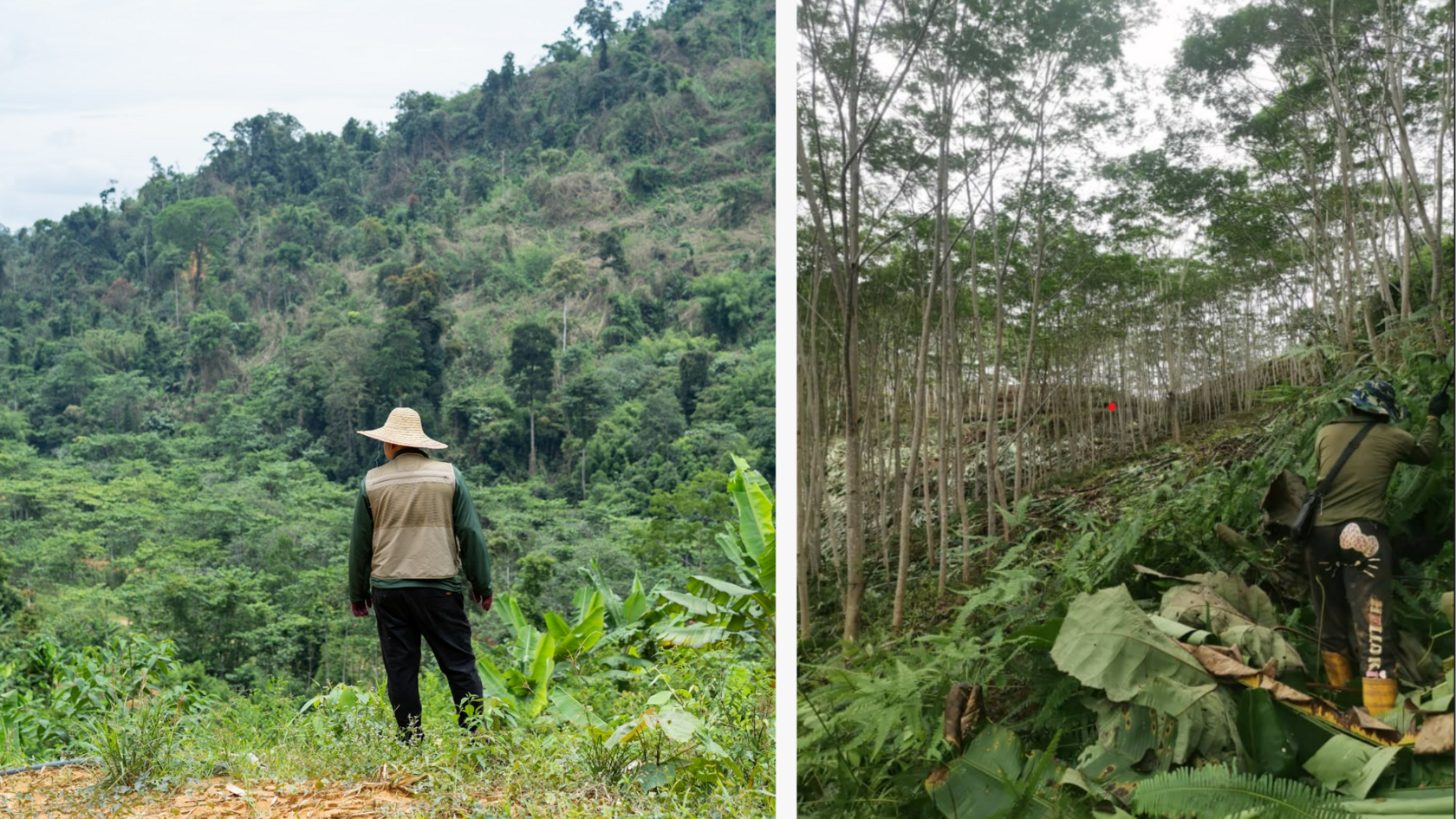Malaysia Albasia's Forest Gardening and Restoration Project
By Ellen Young
March 4th, 2025
Circle Place's project in Musang Valley demonstrates the power of innovative partnerships to tackle deforestation and create sustainable economic opportunities. Facing the challenges of degraded land and complex carbon accounting, they turned to CarbonSpace. Our remote, data-driven approach provided a cost-effective solution, paving the way for significant carbon sequestration and community benefits.
The East Coast region of Malaysia has suffered extensive environmental degradation due to illegal deforestation, leading to significant loss of biodiversity, depletion of water resources, and adverse impacts on the livelihoods of local communities, including the indigenous Orang Asli population. The project owner, Circle Place, sought to restore these degraded lands while creating sustainable economic opportunities through a combination of forest gardening and reforestation. Traditional carbon project development methods posed significant barriers due to high costs and lengthy timelines, making participation in carbon financial mechanisms seem unattainable.
The Solution
Circle Place partnered with CarbonSpace to overcome these challenges. CarbonSpace provided a fully remote, scalable ecosystem baseline assessment covering the five years before the project's start. This assessment established a credible business-as-usual scenario, which is crucial for demonstrating additionality and attracting investment. CarbonSpace's approach, which is compliant with certification requirements and offered at a fraction of the cost of traditional methods, enabled the project owner to move forward with their restoration and carbon sequestration goals.
The Impact
CarbonSpace's data will be used to monitor the project's impact on carbon sequestration over time, providing transparent reporting to stakeholders and potential investors. The project, combining the cultivation of durian (Durio zibethinus) with the restoration of degraded land using Batai (Falcataria moluccana), demonstrates an innovative approach to sustainable land management. The project's success will enhance carbon sequestration and provide sustainable economic opportunities for local communities. The project meets International Carbon Registry (ICR), making it a strong candidate for carbon credit certification.
KPIs
The East Coast region of Malaysia has suffered extensive environmental degradation due to illegal deforestation, leading to significant loss of biodiversity, depletion of water resources, and adverse impacts on the livelihoods of local communities, including the indigenous Orang Asli population. The project owner, Circle Place, sought to restore these degraded lands while creating sustainable economic opportunities through a combination of forest gardening and reforestation. Traditional carbon project development methods posed significant barriers due to high costs and lengthy timelines, making participation in carbon financial mechanisms seem unattainable.
The Solution
Circle Place partnered with CarbonSpace to overcome these challenges. CarbonSpace provided a fully remote, scalable ecosystem baseline assessment covering the five years before the project's start. This assessment established a credible business-as-usual scenario, which is crucial for demonstrating additionality and attracting investment. CarbonSpace's approach, which is compliant with certification requirements and offered at a fraction of the cost of traditional methods, enabled the project owner to move forward with their restoration and carbon sequestration goals.
The Impact
CarbonSpace's data will be used to monitor the project's impact on carbon sequestration over time, providing transparent reporting to stakeholders and potential investors. The project, combining the cultivation of durian (Durio zibethinus) with the restoration of degraded land using Batai (Falcataria moluccana), demonstrates an innovative approach to sustainable land management. The project's success will enhance carbon sequestration and provide sustainable economic opportunities for local communities. The project meets International Carbon Registry (ICR), making it a strong candidate for carbon credit certification.
KPIs
- Pre-Project Land Condition: Abandoned lands with slow or stagnant ecosystem carbon strength.
- Pre-Project NEE Values: Emissions to low sequestration levels.
- Post-Project Sequestration Rates: 16 to 29 tCO₂/ha/year.
- Project Size: 500 hectares of durian cultivation and 2,600 hectares of degraded land restoration.
- Baseline Assessment Cost: Significantly lower than traditional methods (estimated €100,000–€120,000 savings).
- Baseline Assessment Timeline: Significantly shorter than traditional methods (estimated two-year reduction).
“Plant a tree today, cool the earth for tomorrow. Every tree planted is a step toward restoring balance and securing a sustainable future for all.”
-Nelson Neo, Circle Place
-Nelson Neo, Circle Place


